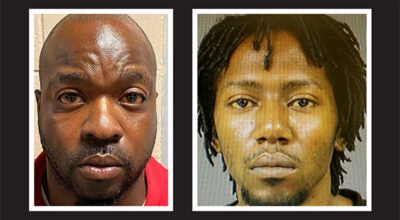Call volume sometimes overwhelms E911 center
Published 7:09 pm Wednesday, June 6, 2018
Sometimes a call to 911 may be picked up a voice recording, but don’t hang-up and a dispatcher will be with you as soon as there is a free line.
Warren County E911 director Shane Garrard said they have recently received criticism on social media and from the general public about calls not being answered. It is not that they are not answering calls, Garrard said, it is that at times the call volume exceeds the number of dispatchers available meaning an automated message will be the first thing callers hear.
“At most, we will have four dispatchers on the floor. If all four of my dispatchers are on the phone, that fifth person will get a recording,” Garrard said. “I urge the public to stay on the line and as soon as they clear from one call, they will answer that call. If they hang-up, they go further back in the queue. It delays them getting help.”
Like many dispatch centers throughout the country, Warren County E911 is understaffed, Garrard said. He added standards say based on their call volume they should have seven or eight dispatchers on duty at a time, but their staff doesn’t allow them to ever have more than four.
“We are doing the best we can with the staff we are allotted,” Garrard said.
Along with the lack of staff, the phone lines also end up being clogged by people calling without real emergencies. Garrard said the rule of thumb for a police call is if the event is currently happening or occurred in the last 15 minutes it is an emergency worth calling 911.
If the event happened more than 15 minutes prior, they ask people to call the non-emergency line at 601-631-8800.
“The key to all that is, it is still going to be the same dispatcher who answers the phone, but what it does is if that phone line is ringing and a 911 line is ringing, the 911 line takes precedent,” he said. “If a car is stolen overnight and you don’t know when it was actually stolen, it is not a lights and sirens response for the police officers.”
When a dispatcher answers the phone, the first thing they work to do is find out where the emergency is occurring and what needs to be dispatched — fire, ambulance and/or police.
As soon as they have that information, they will send the emergency workers to the scene, while still continuing to ask questions.
“At that point, we are keying up on the radio and telling the officers as we are still taking the call what we have and they are headed that way,” lead dispatcher Paige Cook said. “Most of the public doesn’t think that. They think all these questions are protocol that we are asking and we’re not sending them right away. We are not delaying a response.”
Cook added it is a common misconception that the dispatchers can speed up the response or will be responding themselves, and as a dispatcher it is sometimes hard to hear a call that is right nearby and know you are just in charge of sending help and can’t go help yourself, she said.
“None of my dispatchers are leaving,” Garrard said. “Even though we know where you live and know all of your information you just gave us, 911 is not responding. It will either be the police department, fire department, ambulance or sheriff’s department. We are not responding.”
Cook said one of her first major calls was a mother whose child was in distress and was too frantic to follow the CPR instructions she was trying to provide over the phone. The call was coming from right by the 911 center, and Cook said it took everything she had not to go help and realize her job is to send help, not help herself.
“We in the middle of the city so we have a lot of calls that are right there that you think our officers won’t be able to get there as quick,” she said. “You do want to help.”





